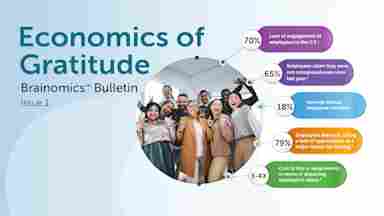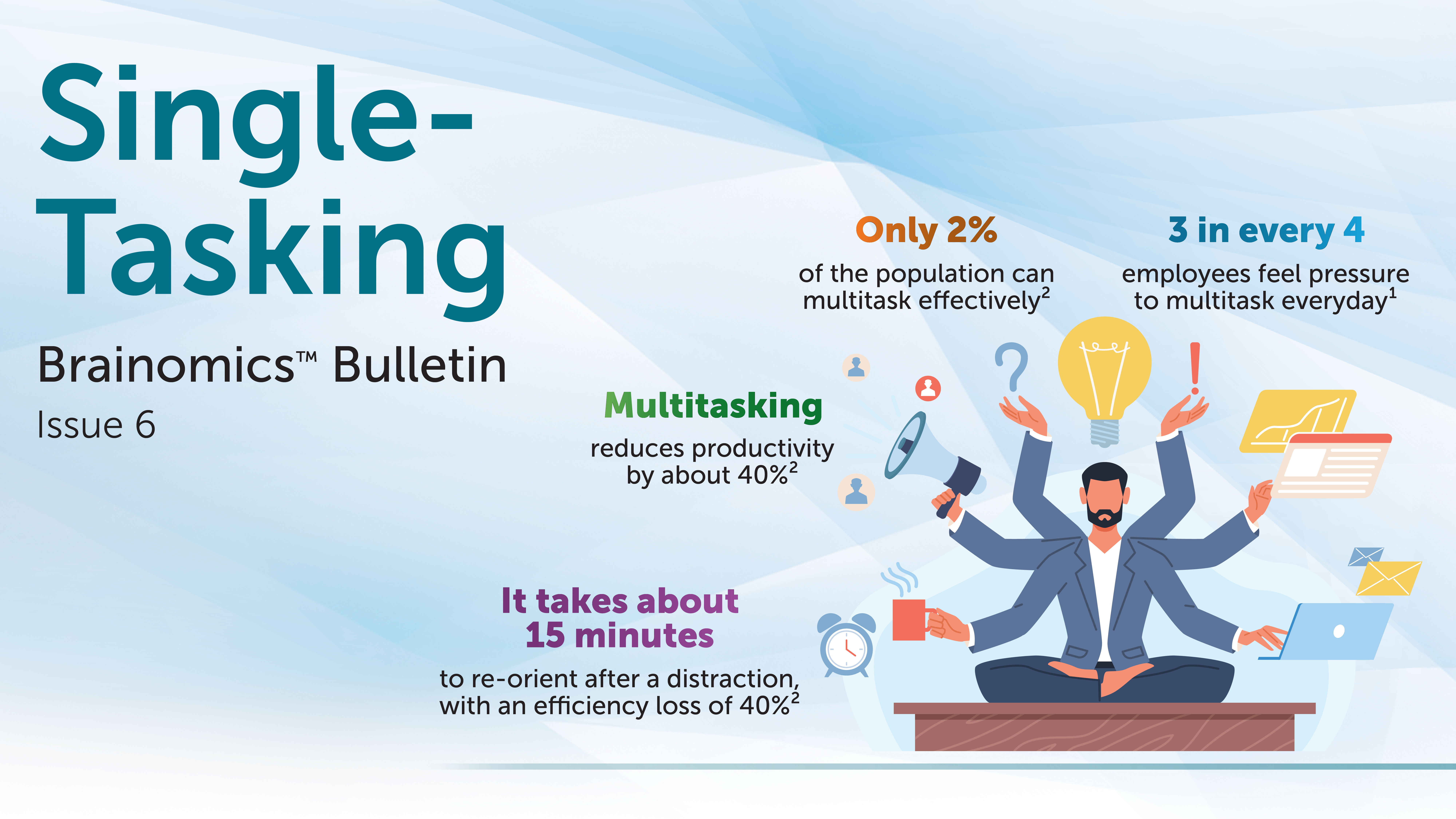The Science of Gratitude
Brainomics Issue 1Open Printable PDFWhen was the last time you expressed gratitude to your teams at work? If the answer is a while ago, or not too often, you might be leaving money on the table. Beyond the feel-good impact on corporate culture of something as simple as gratitude, the Brainomics® team is struck by the potential economic benefits. Neuroscience teaches us that gratitude increases both oxytocin and dopamine production, enhancing mood, motivation, and pro-social behaviors. And it works for both the giver and receiver of gratitude.How does this flow through to better economics at an organizational level?
“”
Our Hypotheses
We would anticipate higher engagement, lower attrition, better productivity, and likely lower healthcare costs. While the economic costs of poor brain health have been widely studied, the upside has not. The infographic above reflects studies showing that 70% of U.S employees lack engagement, 65% feel unrecognized, and 79% who leave cite lack of appreciation as a major reason for leaving – not to mention the fact that replacing an employee can cost 3-4 times their salary. Gratitude could go a long way to improve these numbers.The Brainomics team’s goal is to uncover evidence of economic benefit that will encourage organizations to move in a brain-healthy direction out of enlightened self-interest.A Path Forward
Is this something you are interested in exploring? Perhaps you are already seeing positive results from building a gratitude culture in your organization. The Brainomics team would love to hear from you about your experience with gratitude in the workplace – email me at andrew.nevin@utdallas.edu.One caveat: for those further up the corporate ladder, this might be a little more challenging. One study revealed that – sadly – on average, the more senior you are, the less you express gratitude. But you don’t have to be the average. Be the change you want to see – a little more gratitude in the workplace should have results for the bottom line, and you will feel better too! Stay brain healthy!
- CNBC. (2019, June 21). Here’s the no. 1 reason why employees quit their jobs. CNBC
- Andre, L. (2023, October 15). 112 employee turnover statistics: 2023 causes, cost and prevention data. Financesonline.com
- Navarra, K. (2022, April 12). The real costs of recruitment. SHRM





